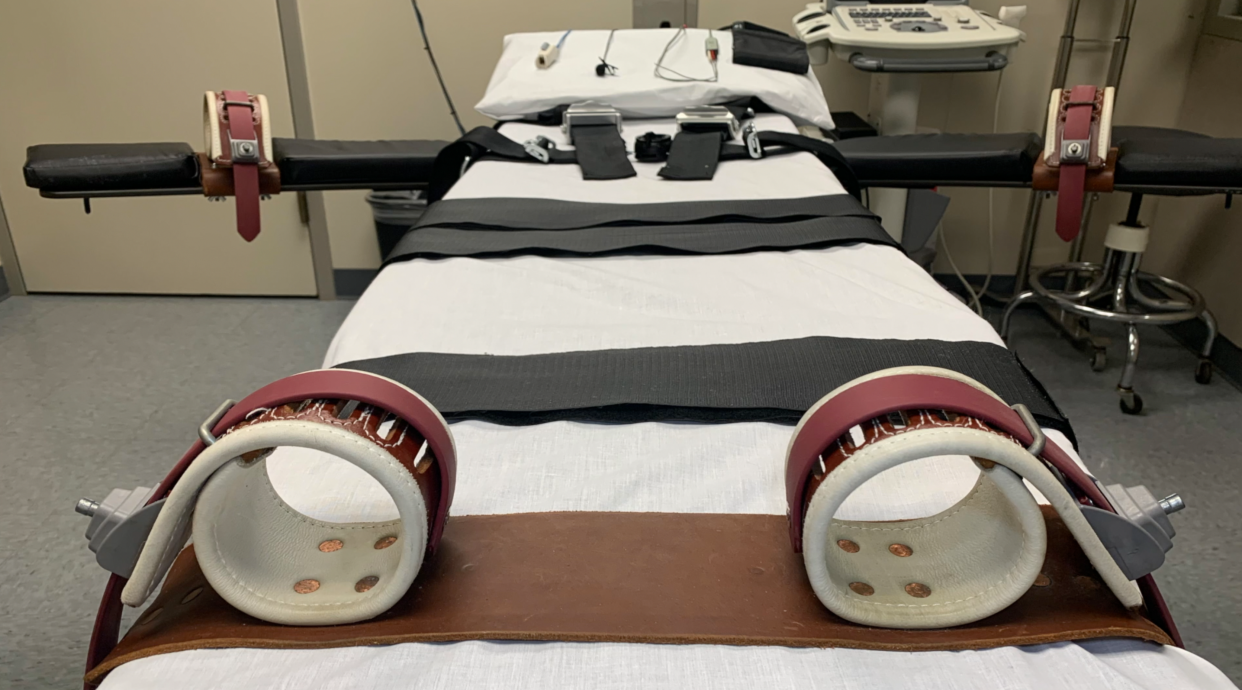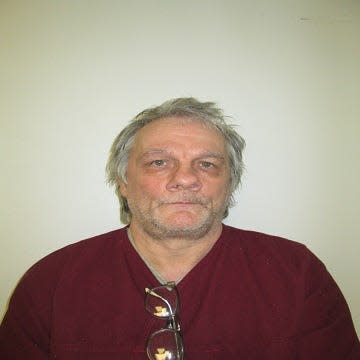Death row inmate Wade Lay spared from execution because of mental state

McALESTER — A judge Thursday ruled death row inmate Wade Lay may not be executed at this time because he is presently incompetent.
The Pittsburg County judge found Lay incompetent after a state psychologist agreed he does not have a rational understanding of why he faces execution.
Lay, 63, was set to be executed by lethal injection June 6 at the Oklahoma State Penitentiary for fatally shooting a Tulsa bank guard during an attempted robbery in 2004.
The decision by Associate District Judge Tim Mills was expected because both a competency trial and his clemency hearing had been called off.

“We are relieved," said Callie Heller, one of his attorneys. “Wade firmly believes that his execution is part of a wide-ranging government conspiracy aimed at silencing him.”
The decision clears the way for the Oklahoma Court of Criminal Appeals to set the next execution, possibly in August. Judges on Tuesday announced future executions will be set 90 days apart "unless circumstances dictate modification."
Up next is Richard Norman Rojem Jr. He faces execution for the fatal stabbing of a 7-year-old girl who was kidnapped from an Elk City apartment in 1984. Rojem, 66, claims he is innocent.
It is the second time this year a death row inmate in Oklahoma has been found incompetent. Pittsburg County District Judge Mike Hogan ruled in March that inmate James Chandler Ryder also did not have a rational understanding of his execution.
Lay has been diagnosed as having a severe mental illness, schizophrenia.
An expert who evaluated him in 2021 concluded he has delusions he is being executed "to prevent him from presenting his ideas in an open forum, which he believes would lead to a new system of government, thereby imperiling those in power."
More: Future executions in Oklahoma to be set for 90 days apart
"He lacks a rational understanding of the reason Oklahoma seeks his execution. He believes the 'true' reason is that his views must be silenced," the psychologist, Richart DeMier, wrote.
DeMier evaluated Lay for his attorneys.
The state expert, Scott Orth, evaluated Lay Feb. 1 at the Oklahoma Forensic Center in Vinita. Orth is the center's director of forensic psychology.
Orth wrote Lay does not currently "have a rational understanding as to the reason for his execution, i.e., that he was convicted of murder."
Killed in the bank robbery attempt on May 24, 2004, was Kenneth Anderson.
Lay and his son went to rob the MidFirst bank in Tulsa to fund the purchase of guns for their antigovernment plans. They believed "that the United States Government had become tyrannical and that they had to start a patriotic revolution as was done by America's founding fathers," the Court of Criminal Appeals said in an opinion upholding the father's conviction.
"The Lays entered the bank armed, wearing ski masks and gloves," according to the opinion.
"Christopher Lay confronted bank employee Brian Easlon and ordered him to the ground. When bank security guard Kenneth Anderson entered the lobby, a gun battle erupted wounding the Lays and killing Anderson. The Lays, without obtaining any money, fled across a field to their truck.
"Both were apprehended later that day and were taken to the hospital. At trial, both Lays admitted guilt but asserted that their actions were driven by a necessity for the greater good of the country."
The son was sentenced to life in prison without the possibility of parole for the deadly gun battle.
This article originally appeared on Oklahoman: Death row inmate Wade Lay spared from execution because of delusions
